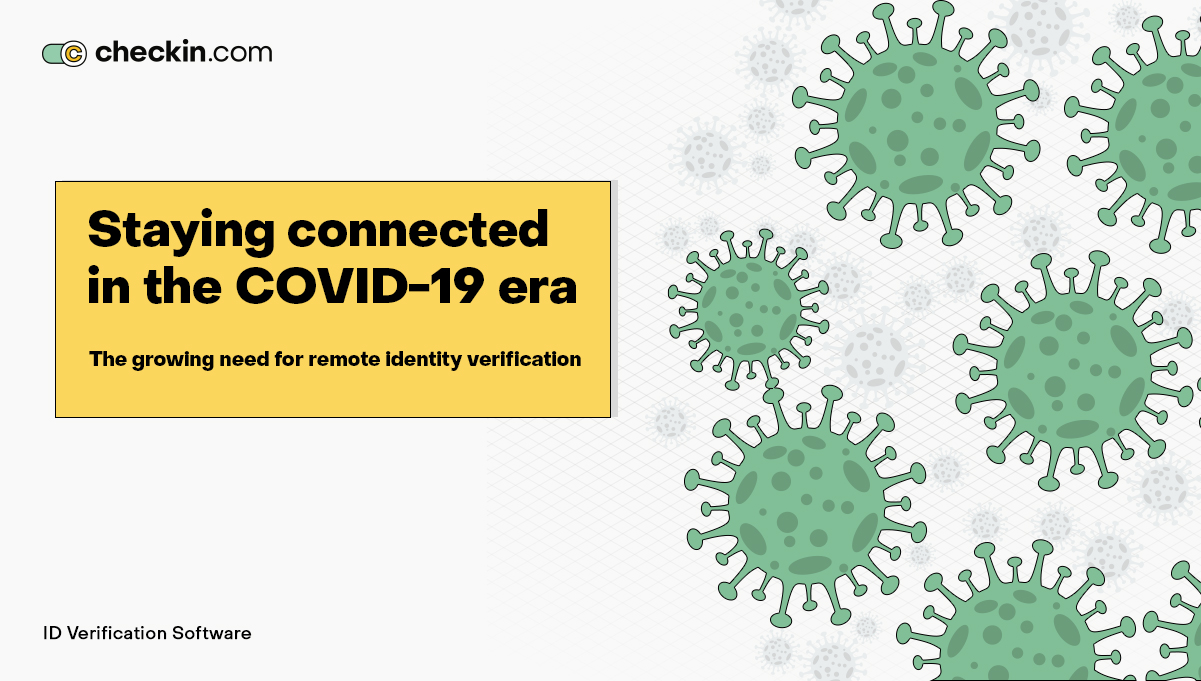
The Emergence of Remote Identity Verification in the COVID-19 Era
20 Dec 2022
In this age of a global pandemic, where lockdowns and social distancing have become the norm, we’ve been compelled to rethink our daily operations. One of these significant shifts includes the need for remote identity verification.
As face-to-face interactions plummet and digital engagements soar, the ability to verify identities remotely has become not just an option but a necessity. Service providers are innovating to meet this challenge, offering solutions that empower us to authenticate our identities right from our living rooms.
Demystifying Remote Identity Verification
Essentially, remote id verification service is the process of validating an individual’s identity using digital means without their physical presence. It capitalizes on technology to cross-check various identity documents and personal details.
Amid the COVID-19 pandemic, this approach has surged in relevance. Whether it’s for online banking, healthcare services, e-commerce purchases, or digital learning, remote identity verification is crucial.
Accelerating the Adoption of Remote Verification
The pandemic, while disruptive, has also spurred innovation and adaptation in unprecedented ways. Traditional identity verification methods that require physical interaction are no longer tenable, paving the way for remote alternatives.
Service providers have responded swiftly, incorporating cutting-edge technologies like AI, biometrics, and blockchain to enable secure and efficient remote identity verification. These advances ensure that our daily activities continue with minimal disruption.
Why Remote Identity Verification Matters
Here’s why remote identity verification is gaining momentum:
- Convenience: No need to visit a physical location or adhere to specific operating hours.
- Safety: A virtual process means zero risk of physical virus transmission.
- Efficiency: Automation often leads to quicker and more accurate results than manual checks.
- Security: Technologies like AI and biometrics can help catch fraudulent activities, ensuring a high level of safety.
Pioneers in Remote Identity Verification
Service providers are the vanguards of this new frontier, developing innovative solutions for remote identity verification. From mobile apps employing facial recognition to blockchain systems creating secure digital identities, these providers are rewriting the rulebook on identity verification.
Remote Identity Verification Post-COVID-19
As we adapt to the realities of the COVID-19 era, remote identity verification is cementing its place in our future. The convenience and safety it offers make it likely that its widespread adoption will continue even beyond the pandemic.
Exploring the Mechanisms of Remote Identity Verification
A deeper look into remote identity verification reveals an intricate process powered by advanced technologies. Firstly, an individual presents identity documents such as a passport or driver’s license. These are scanned digitally, using artificial intelligence and machine learning algorithms to validate their authenticity.
Next, the individual might be asked to provide a selfie or a short video. Facial recognition technology is then used to compare the face in the image or video with the one in the provided document. Liveness detection might also be incorporated to ensure that the person providing the identity proof is a real, live human and not a static image or a pre-recorded video.
Finally, the system may conduct a background check using the provided details. This step may involve cross-referencing information with data from trusted sources or checking against global watchlists to ensure there are no red flags associated with the person’s identity.
The Challenges of Remote Identity Verification
While the shift towards remote identity verification brings a plethora of benefits, it isn’t without its challenges. For one, the digital divide still exists; not everyone has access to the internet or the digital literacy needed to navigate these processes.
Additionally, privacy concerns are more significant than ever. With personal information being shared digitally, ensuring robust data protection measures are in place is paramount. Similarly, with the use of technologies like AI and facial recognition, there are ethical considerations that need addressing.
However, as the world becomes more digitized and these technologies continue to evolve, solutions to these challenges are emerging. We are already seeing encryption technologies improving, regulations adapting, and digital literacy programs being initiated.
Identity Verification Companies
Companies offering identity verification services are at the forefront of this evolution. They not only provide the technologies enabling remote identity verification but also undertake the responsibility of ensuring these processes are secure, user-friendly, and accessible.
Conclusion
While the pandemic has presented us with many challenges, it has also accelerated certain technological trends. Remote identity verification is one such area witnessing rapid advancement.
As we traverse this new landscape, the rise of remote identity verification exemplifies our ability to adapt and stay secure. It’s not just a reaction to a crisis, but a leap towards a more flexible and inclusive tomorrow.
FAQ
What is remote identity verification?
Remote identity verification is a digital process that allows individuals to authenticate their identities without the need for physical presence.
Why has remote identity verification become more important during the COVID-19 pandemic?
As the pandemic restricts physical interactions, remote identity verification ensures people can continue their activities safely and conveniently.
Wat technologies are being used in remote identity verification?
Technologies like AI, biometrics, blockchain, and facial recognition are being leveraged for secure and efficient remote identity verification.